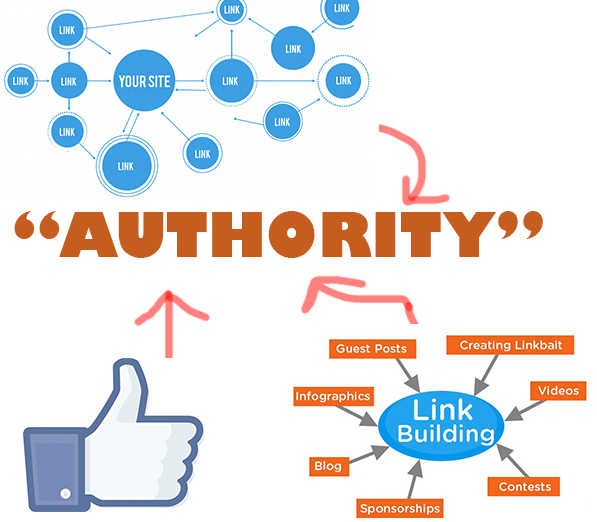The Internet revolution has pretty much transformed every aspect of life: from shaping our sociopolitical thought to changing the way we do business. It is the latter that has been particularly affected and just about every conceivable form of commercial activity is now based on the Internet.
As the name of the game changes, so do its rules. Perhaps the most talked about development in this regard has been the modernization of advertising and marketing in particular and communication in general. We’re talking, of course, about the buzzword of the century: SEO.
It’s everywhere and for good reason: done right, SEO can guarantee staggering success in terms of page views, hits, unique visits, impressions and more: the higher the numbers the more your pool of potential and recurring audiences and customers increases. That’s what SEO does: it gets more and more people to stop by your Internet space.
But for every SEO maverick the gets it right, there are twenty who get it wrong. And that’s because most folks have an awfully limited understanding of how SEO is supposed to be used. We’ve all heard the common grouse that one of the first casualties of an aggressive SEO strategy is the quality of the content itself.
If you’re focusing all your energy into using as many keywords possible, embedding numerous links into the content, fitting in all the relevant catchphrases (and sneaking in some irrelevant ones as well), terrorizing the Internet with backlinks to your page, crawling the great WWW for dead links to optimize and so on, stop.
What you’re doing is compromising the depth and quality of your content. What you’re not doing is wooing the people your marketing it to. The top SEO gurus all swear by the same adage: Content is King.
Here’s why:
#1 Intelligent Customers Want Intelligent Content
The customer gets what the customer wants, and when it comes to online content the customer wants quality.
Now you might be wondering: what customers? We’re just talking about content: how did customers and business economics become a part of this conversation?
The rationale is pretty simple: in any business the primary prerogative is to please the customer. Whether you are using online content to sell goods and services, educate readers or just simply ghostwriting for someone else’s website, the practice of creating content looks like any other business activity: the point is to make a good impression on the target audience.
Research has proven time and again that the Internet audience has grown up and has simply no patience for shoddy content. They’re smart and they want content that respects the same.
If you sacrifice the quality of your content you’re going to annoy, bore and disrespect your viewers. Even if you do manage to drive a few visits to your page, they’re going to opt out quickly.
Neilpatel Uses Exactly those Headings and Customer Capturing content that will urge the reader to continue all the way down to end once he starts reading.

#2 Search Engines Know This, And Act On It
Fooling the search engines is no longer as easy as it once was. Their creators are wise to common SEO tactics and the readers’ resultant frustration. So, they use quality-testing algorithms to gauge the substance value and readability of all the content they host. As a result, only websites that pass muster make it through. In other words, poor quality content is shunned in favor of superior content.
Basically, you can no longer dupe search engines into giving you a high page rank. Even if your content is chockfull of keywords that users search for, it’s going to get buried under pages and pages of better content.
So, if you couldn’t care less about what viewers feel and think when they visit your website and all you want is solid Internet traffic, here’s another reason to reimagine your strategy and start giving content the attention it deserves.
#3 Good Content Gets Shared
Human beings are social creatures: we like to share and communicate with others. The online realm has its own version of good old-fashioned word of mouth marketing: posting. Millions of people post material to their social media platforms, websites, video channels and blogs. They ‘forward’ links via email to their social and professional circles.
With the millions and millions of people using the Internet every hour of tevery day the potential for unpaid advertising and PR is unprecedented. Not only are you going to use your own social media to market your business and your brand, you are going to get other people to do so for you as well.
But this isn’t going to happen if people don’t like your content. They’re not going to recommend your webpage, e-store, blog etc. to others if they didn’t enjoy their own experience with the same.
The more mentions you get on the Internet and the greater the frequency with which your links are published online, the higher (and more populous) your search engine rankings are going to be.
#4 Search Engines Prioritize Authority
We’ve already talked about how search engines are weeding for quality. Did you know that they’re also concentrating on prioritizing authority? Confused? Here’s what it means: search engines now favor webpages that are authorities in their niche. In a bid to provide search engine users with pertinent results and direct them to useful content, search engine systems give precedence to content with credence.
This is done by evaluating the factors be discussed in points 1 through 3, and more. Search engine algorithms measure the relevance and quality of content vis-à-vis its associated search phrases. They also count the number of times a particular webpage appears in search engine listings naturally. They monitor the popularity of links across the Internet. All these elements contribute to solidifying the position of a brand on the Internet. And the more compelling a brand is the greater its authority, and vice versa.
And since search engine algorithms are now capable of assessing content creator authority it’s yet another factor that feeds into the SEO viability of your webpage. And so, you’ve another very good reason to boost the credibility of your brand on the Internet by making sure your content is top notch.

These reasons are just the tip of the iceberg of argument in favor of good content for better SEO.
At end of the day you’ve got to put yourself in the shoes of your audience: would you like it if someone blatantly tricked you into perusing abysmal content? It goes without saying that you wouldn’t. So, instead of trying your luck with entry-level-SEO gimmickry, create superior content for surefire success.
Don’t lose to laziness.









